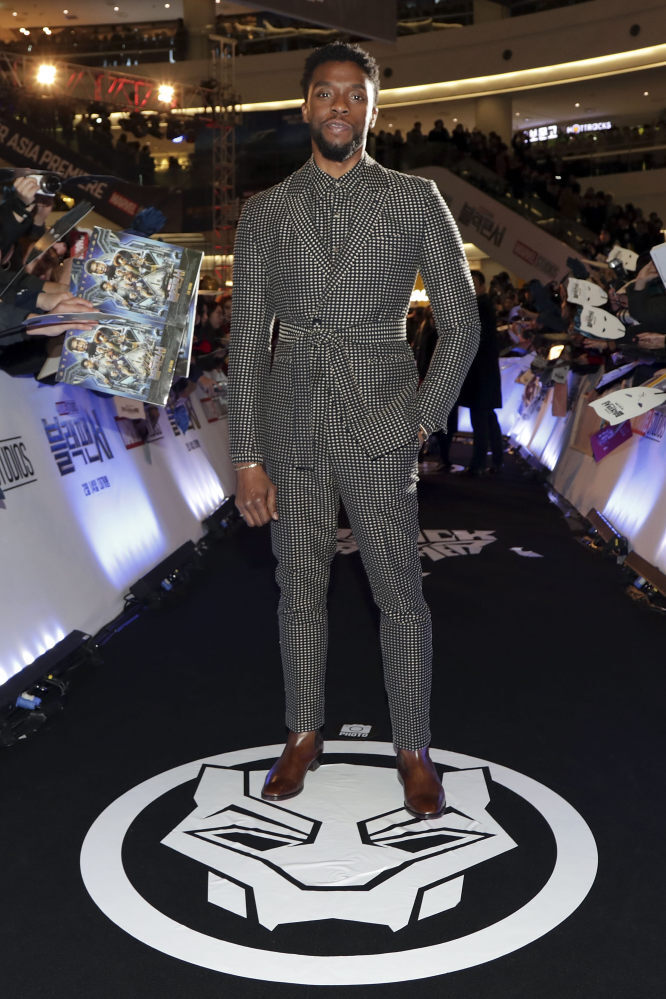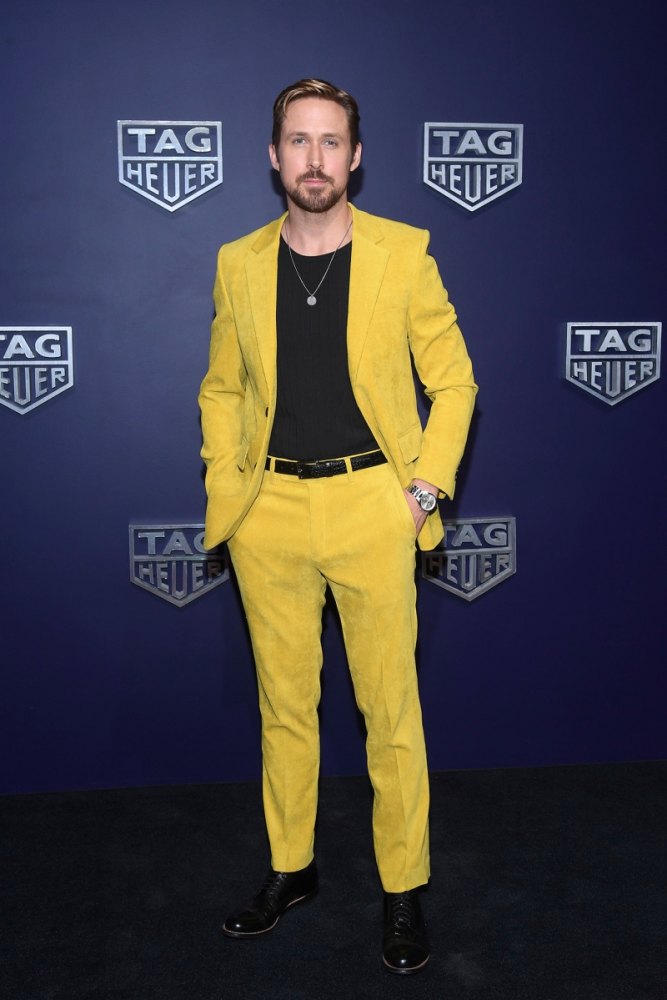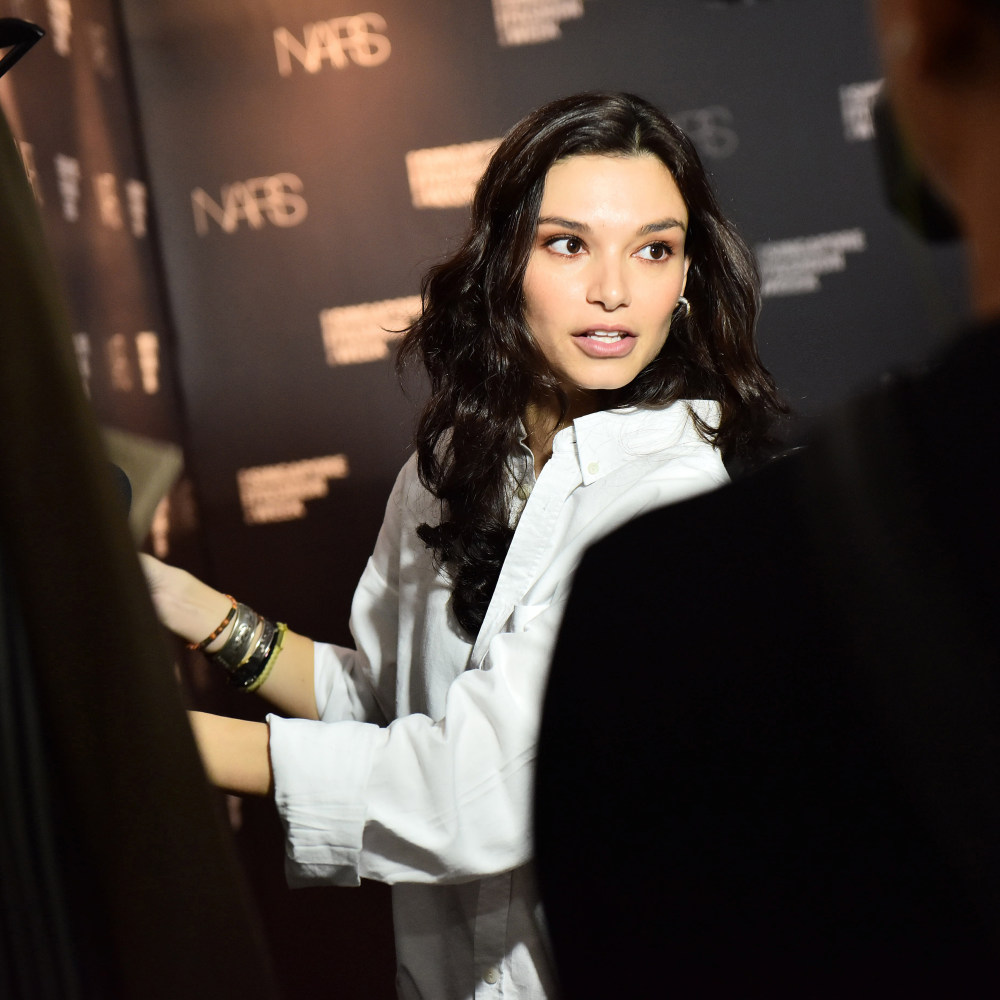
From Shawn Mendes to Usher and Simu Liu, why Dzojchen’s fashion collections, by Eurasian designer Chelsea Scott-Blackhall, are a hit with A-list celebrities
- Chelsea Scott-Blackhall’s label, based in Singapore and New York, hit the big time after Chadwick Boseman wore one of her kimono suits to a film premiere in Seoul
- Since then, her well-tailored and sleek pieces have increasingly been seen on some of the hottest stars of today
Looking back, Chelsea Scott-Blackhall can pinpoint exactly when her fashion brand had its transformative moment. It was 2018, and Chadwick Boseman, the late star of Black Panther, attended the Asian premiere of the film in Seoul dressed in a sleek, patterned three-piece kimono suit from Scott-Blackhall’s brand, Dzojchen.
That one red carpet appearance opened a multitude of doors. More stylists approached. Interview requests flooded in. Shoppers beat a path to the Dzojchen site. (It’s pronounced “doh-jen” and is Sanskrit for “wholeness”.)
The kimono suit became a thing, being worn by actors Mahershala Ali and Lakeith Stanfield, and turned into a signature look for the brand, which is based in Singapore and New York and focuses mostly on menswear.

“I think you just design to your nature,” says Scott-Blackhall, who lives between Singapore, New York and Los Angeles. “I am Eurasian, grew up in England and Singapore. I don’t think I consciously designed something that had Asian attributes. But this felt right.”
Dzojchen has quickly become a coveted name among A-list stars. Within the same week that we talked with Scott-Blackhall over breakfast at a Los Angeles restaurant, Owen Wilson had made his Saturday Night Live debut wearing a deep teal brushed micro-corduroy suit. Usher wore a metallic corduroy silk blouson tracksuit and Anderson .Paak was out in baby blue denim.
Dzojchen, which she started in 2011, had something of a choppy time getting to where it is. Scott-Blackhall, born in Singapore to a British advertising executive father and a Singaporean-Chinese psychologist mother, had never studied fashion but had worked on the fringes of the fashion industry, dabbling in marketing, advertising, and branding between Sydney, Hong Kong and Bangkok.
She always loved denim, so began sourcing fabrics from Japan and Hong Kong and pulled together a small denim collection. A friend in New York, who owned a T-shirt brand, suggested they share a booth at the Bread & Butter trade fair in Berlin. Scott-Blackhall pitched up there, stuck a bunch of hooks onto a wall, hung her denim pieces up and hoped for the best.

“I had no concept of what I was doing,” she says. “All the big denim boys were there in these massive gold-clad booths, and here was me with my removable hooks and my friend with a rack of T-shirts. We must have looked so horrid. People were looking at us like, ‘Is this a cult thing that they almost don’t need to try?’”
The experience was eye-opening, forcing Scott-Blackhall to ask herself how serious she was about being in the business.
“That was the point I had to ask myself, ‘Is this a hobby, or do you think you could be good at it, and how far do you want to go?’,” she says. “Because I loved the learning curve of how to make clothes, how to speak to vendors, learning each step. The only thing that made me think twice was my lack of knowledge, and that felt attainable.”
In 2014 Scott-Blackhall launched a full collection and took it to trade shows in Paris and New York. She participated in fashion weeks in Seoul, Hong Kong and Paris. Her pieces began showing up in stores like Bloomingdale’s and Macy’s. But still, she felt like things needed to evolve.
So she shifted collections, adhering to the contemporary aesthetic but going more luxury.
“As I evolved and matured in the way I wanted to design, so too did the brand. I invested in better fabrics and production. I started doing footwear, eyewear, expanding on things that completed the look.”

It’s a look that is being increasingly embraced across the globe, thanks to the designer’s specific point of view, her facility with adding an element of surprise, and that utterly gorgeous fit.
From the Heartbreak Hotel collection comes a shimmery copper short-sleeved shirt, or from the Wonderwall offering a subtle chevon-print slender suit. Scott-Blackhall has built a thriving custom business; she says she has “massive warehouses” full of bales upon bales of fabric that catches her eye, and if someone wants a floral three-piece suit, for example, she can make that happen.
“We design to someone’s nature,” she says of Dzojchen’s distinctive aesthetic. “We refine the contemporary classics. I like stylistic surprises, pieces that are bold but controlled.”

“You have something that is a suit, and a suit is bog-standard, but then what are we doing to switch that up? So we switch up the silhouette. We add a belt to a blazer, and that’s special because you’re not seeing it on the regular Joe.
“I’m not designing for a museum or gallery exhibition, where it’s so different you can’t wear it. I like differentiation, and differentiation is in those little choices that are still refined. We’re picking up on those little bits that someone wants to express themselves in, but doesn’t want to go all out where they’re not themselves.”

